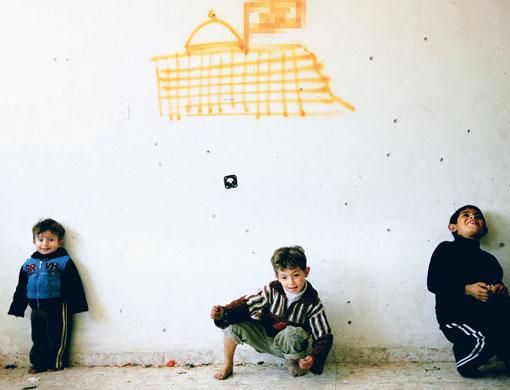Gaza City: A week after the Israeli offensive ended Wa'el Al Attar was found dead sitting next to a Kenya tree. Both he and the tree had been wounded by an Israeli missile.
Wa'el, who had moved his family from house to house, neighbourhood to neighbourhood for days on end seeking safety, is now one of the many recovered bodies of the Gaza war.
He finally died in the village of Al Atatreh east of Beit Lahiya in the northern Gaza strip. It was his own village and the Kenya tree was next to his ruined home. When his wife and family returned to the area to find their dead father and a ruined home, his wife fainted from grief, confusion and sorrow.
The Al Attar family from Al Atatreh represents a story told many times over; a father dead, a home ruined, young children and nowhere to go. There were 95 bodies uncovered in the small village. For the families that survived the war, the real battles are still to come.
The destruction was hard to believe for many. Raja' Faysal Deeb Al Attar swore she found Israeli women's underwear in her half destroyed bedroom. There were cornflakes, chocolate syrup, juices, and canned food as well as empty munition cartridges.
It appeared that the army used the Al Attar residence as a base camp. The family felt violated, used and angry.
The Al Attar family lived in one large home; each of the sons had their own apartment, built one on top of the other. There were only a few rooms left of the main building, fences, sheds and gardens looked like bulldozed.
Gazy Deeb Al Attar, whose apartment was on the third floor, found his fridge on the ground. "It looks like they threw it out the window," he said.
The furniture, the appliances, the walls and the carpets were under the concrete and sand in pieces. The family couldn't find a plate to eat from.
"It's like they wanted to destroy everything they saw," said one member of the family. With no construction materials being allowed into the Gaza Strip, the Al Attar family is picking through the crumbled concrete, sorting through what remains, and trying to piece together a life.
They may have survived the war, but now they have to live.
- Bilal Badwan is a journalist based in Gaza













